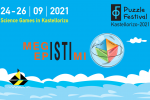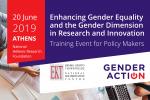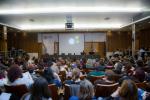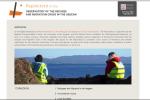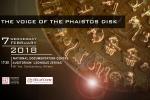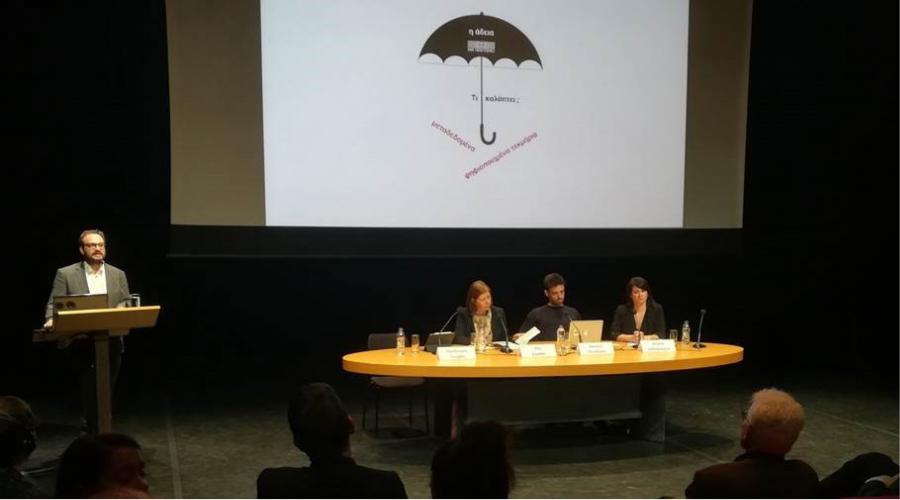
Digital archives are a fundamental source of information for the modern researcher. However, do we know how to exploit them fruitfully, creatively and properly and how to incorporate the material into the educational and research process? At the Cavafy Archives Event, Onassis Foundation on Tuesday 9 April 2019, prominent people from the world of research, literature and culture gave examples of the organisation and management of archival sources and literary documents from the domestic and international knowledge ecosystem which have an impact on research and educational practices.
The second of the three complementary sessions of the event focused on ‘Archival Sources: Practices for Access and Best Use’ and was chaired by the Director of the National Documentation Centre (EKT) Dr. Evi Sachini, who presented the best practices for open access and proper reuse of digital archives. Also taking part in this session were Prodromos Tsiavos, Head of Digital Policy & Development, Onassis Foundation, Agiatis Bernardou, Digital Curation Unit, IMSI, ATHENA RC and Vassilis Tzouvaras Senior Researcher, Intelligent Systems, Content & Interaction Laboratory, National Technical University of Athens.
Bringing the discussion to a close, Dr.Sachini stressed the value of aggregating cultural and scientific documents in a single search space. She made special mention of the good organisational practices that the Onassis Foundation follows in digitizing the Cavafy Archive, stressing the need for the aggregation of all these scanned files into a single content search portal. As she explained, EKT, in its institutional role to collect, organise, disseminate and preserve authoritative digital content and data produced by the Greek scientific, research and cultural communities, has already developed two such content search portals: searchculture.gr for cultural content and openarchives.gr for scientific content. More than 480,000 cultural items from 59 content providers can be found on the Searchculture.gr platform and 723,000 digital items of grey literature from 60 content providers. One of the key archives of the OpenArchives.gr platform is the National Archive for PhD Theses, which is officially compiled and maintained by EKT.
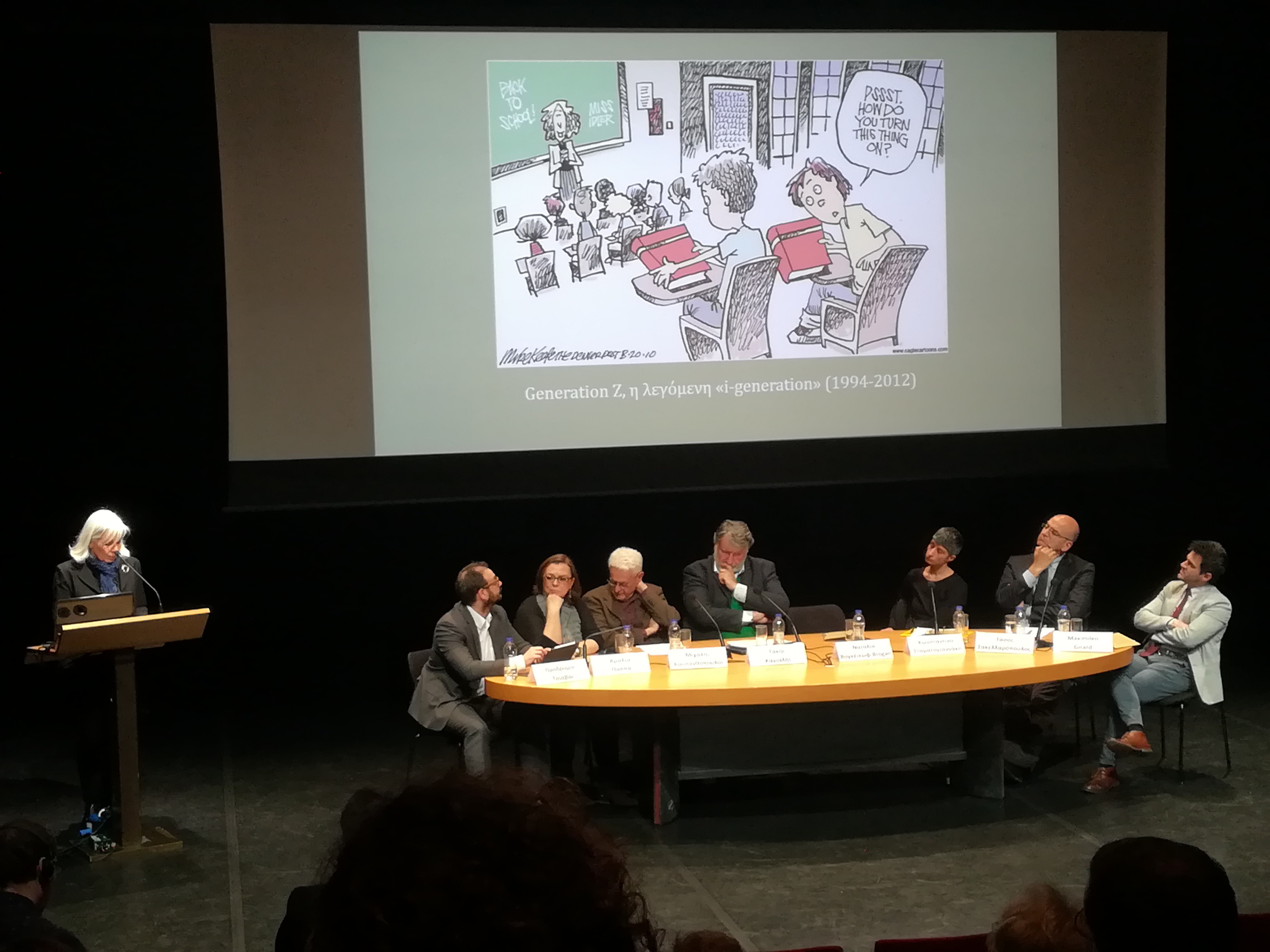
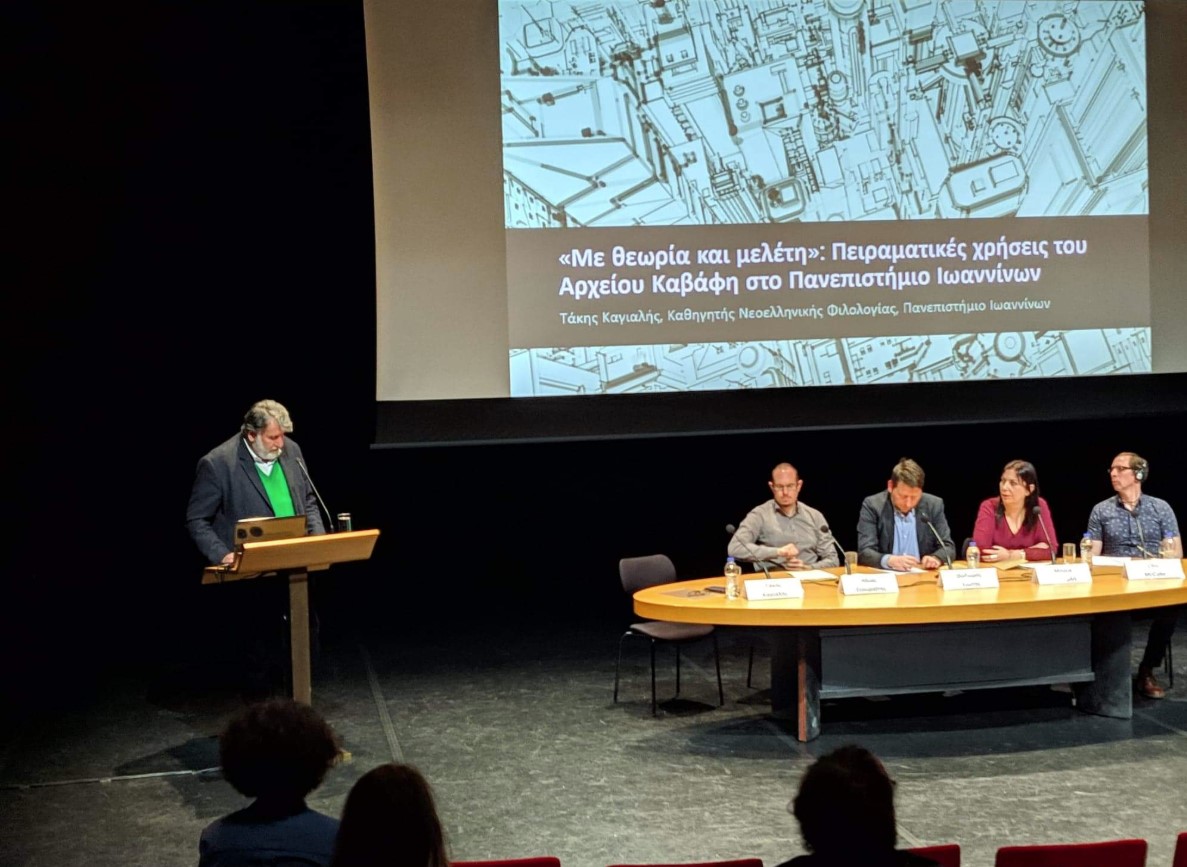
Sessions 1 and 3 considered: ‘Best Practices for Organising Archival Sources: Literary Archives As Case Study’ and The Use of Archives in the Educational Process’. All sessions were followed by audience discussion.








